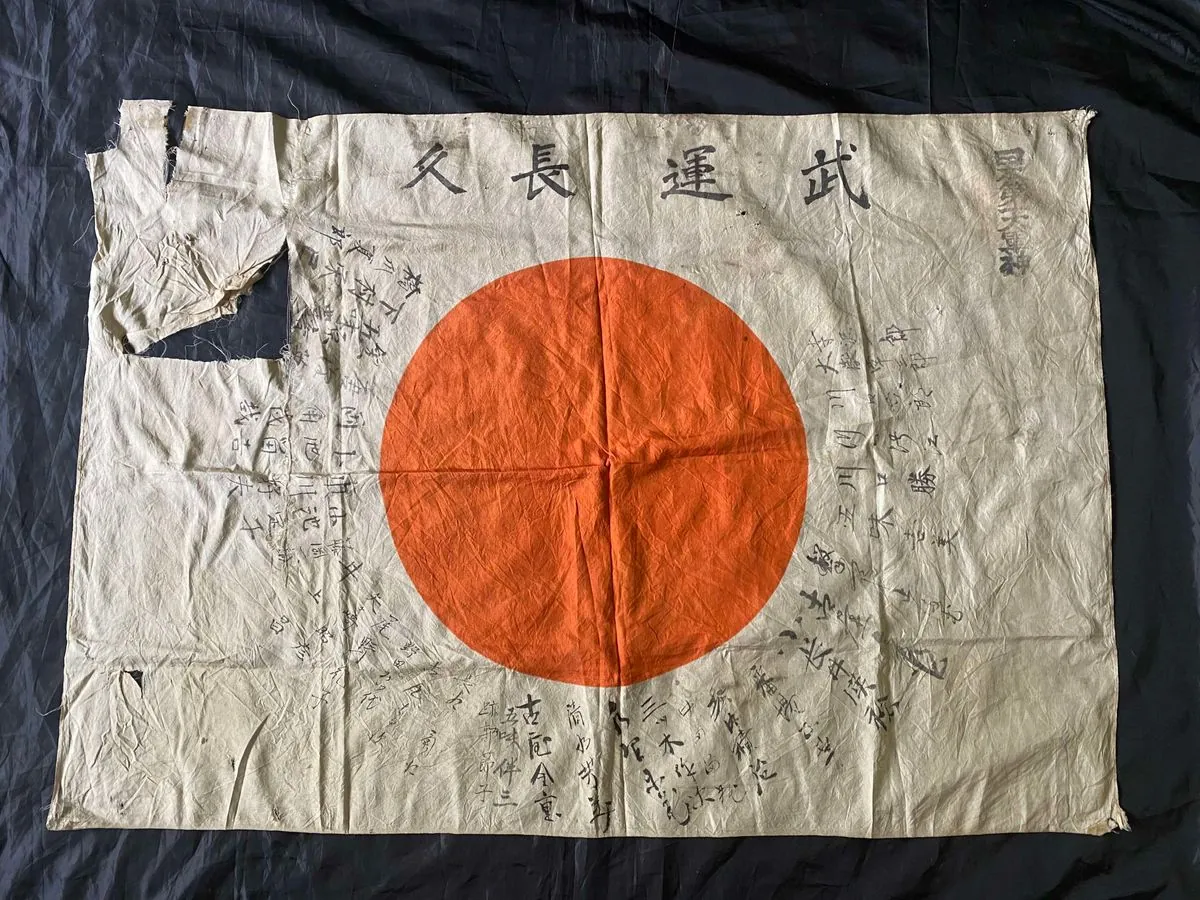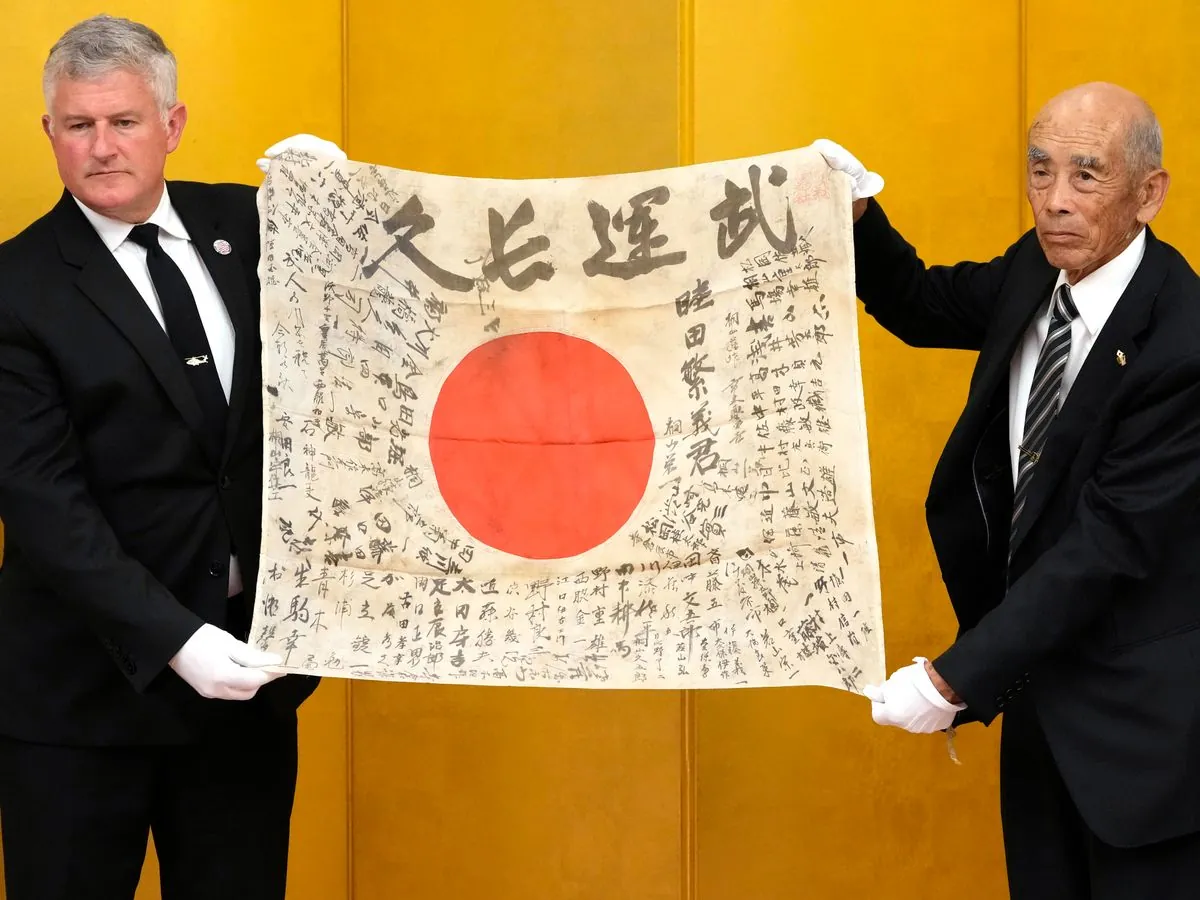Japanese WWII Flag Returns Home After 78 Years, Bringing Closure
A Japanese "good luck flag" from WWII, kept by a US veteran for decades, finds its way back to the original owner's family. The emotional journey highlights the importance of returning war memorabilia.

In a poignant tale of reconciliation and remembrance, a Japanese World War II "good luck flag" has found its way back to its rightful home after nearly eight decades. This story not only bridges generations but also highlights the ongoing efforts to heal the wounds of war.
Scott Stein, a New York-based artist agent, inherited a Japanese flag from his grandfather, Bernard Stein, a veteran who served with the U.S. Army's 38th Infantry Division in the Philippines during World War II. The flag, known in Japan as Yosegaki Hinomaru, was a common item carried by Japanese soldiers into battle, signed by family and friends for good fortune.
"I'd see it every time I went over, and I knew that flag was important to him, even though he never talked about the war. We never knew where he got the flag, but we knew he'd been through some really heavy combat."
For years, the flag adorned Stein's wall, a silent testament to his grandfather's wartime experiences. However, as time passed, Stein began to question whether keeping the flag was appropriate. This led him to research ways to return it to its original owner's family.

Stein's search led him to the OBON Society, an Oregon-based nonprofit dedicated to reuniting these flags with the families of fallen Japanese soldiers. Founded in 2009, the organization has successfully returned over 600 flags, with an estimated 50,000 still unaccounted for in various collections and museums worldwide.
The OBON Society's meticulous research eventually traced the flag to Tsukasa Hiyama, the 81-year-old son of the original owner, Yukikazu Hiyama. Tsukasa, who lives on the Japanese island of Honshu, never knew his father, who was killed in China in 1945, just two years after leaving for war.
The return of the flag brought unexpected closure to Tsukasa and honored the memory of his mother, Asae Hiyama, who had long hoped for her husband's return. In a touching gesture, Tsukasa took the flag to his mother's tombstone, unfurling it in a moment of profound connection.
"The return of my father's flag has brought a significant sense of closure. When I held the flag in my hands, it felt as if I could sense my father's warmth for the first time."
This story underscores the complex emotions surrounding war memorabilia and the importance of repatriation efforts. As Rex Ziac, co-founder of the OBON Society, notes, "These flags were like a love letter to each soldier. We never give up."
The return of Yukikazu Hiyama's flag serves as a reminder of the human cost of war and the power of reconciliation. It also highlights the ongoing need to address the lingering effects of past conflicts, even as we approach the 80th anniversary of World War II's end.
As more families become aware of organizations like the OBON Society, there is hope that more of these poignant artifacts will find their way home, bringing peace to families and fostering understanding between former adversaries.


































